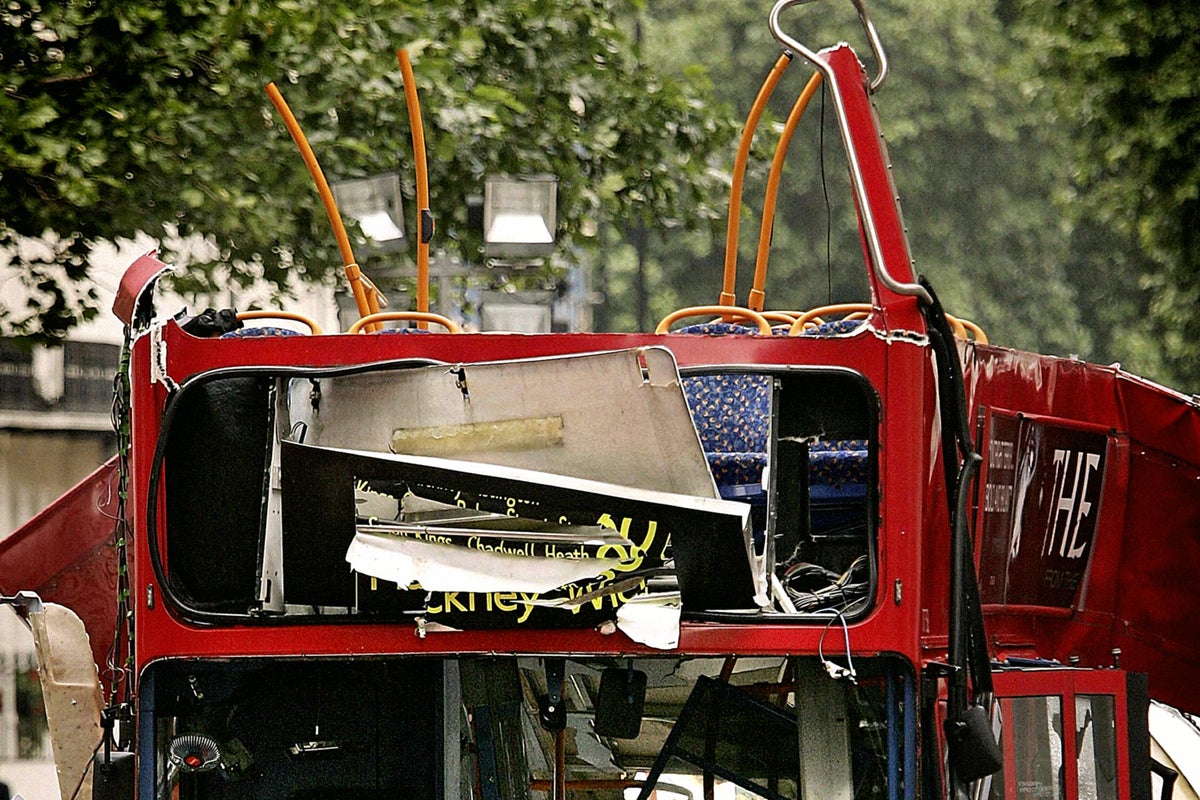The 7/7 bombings have been described as a “watershed moment” for the Metropolitan Police’s counter-terrorism squad, the head of the force has said.
The team drove to London to help in the aftermath of the attacks on July 7 2005, and remained in the capital for the next two decades.
In 2005 Commander Dominic Murphy had been an officer in Hertfordshire for 12 years and had trained as a bomb scene examiner before the attacks on the transport system that killed 52 people and injured hundreds more.
When he saw the horror unfolding on the television, he “did that thing that police officers shouldn’t really do” and headed to London before he had been officially deployed.
Mr Murphy said: “I was an officer who could be called into London or some other part of the country to help SO13 (former Met anti-terrorist branch) if they were responding to a terrorist attack, or conduct searches or support them in some way.
“And I remember sitting in the special branch office, which is our intelligence unit in Hertfordshire, and I was watching this unfold on TV, and I did that thing that police officers shouldn’t really do.
“I didn’t wait to be deployed. I spoke to my line manager and grabbed a car and all my kit and equipment and drove straight down to London to be here as quickly as I could.”
The compassion shown by the officers investigating the bombings and the speed at which they worked inspired him to spend the rest of his career in counter-terrorism.
Mr Murphy said: “I arrived in our forensic management team.
“These were the officers and staff that were leading the response at the scenes to gather the evidence and recover those that had been unfortunately killed in the incident.
“I arrived to something I would describe as a really high pace of activity, the sort of activity you would expect policing to be doing at a terrible incident like this, but of course, this was on a scale and a type of incident we had never seen.
“I was struck by all of those counter-terrorism officers from SO13 that I met, their professionalism, their commitment to finding who was responsible for this attack, their overwhelming compassion for victims… that compassion extended to how they recovered those that were deceased from the attacks.
“I was struck by the end of that first day to see the professionalism and the pace they were working at. I never wanted to work anywhere else.
“I really only ever wanted to work with this group of people who I thought were some of the most impressive people I’d ever seen, and just the way that commitment portrayed itself to their service to the public and the victims was overwhelming for me.
“So I had been a Hertfordshire officer for nearly 12 years at that point, but I never really went back to Hertfordshire.
“I stayed here then, and have been here in counter-terrorism for the rest of my career.”
He specialised in body recovery, and has been deployed abroad to help investigate several atrocities involving British victims or interests, including the 2015 Tunisian beach attacks as well as tragedies in Algeria, Yemen and Sudan.

